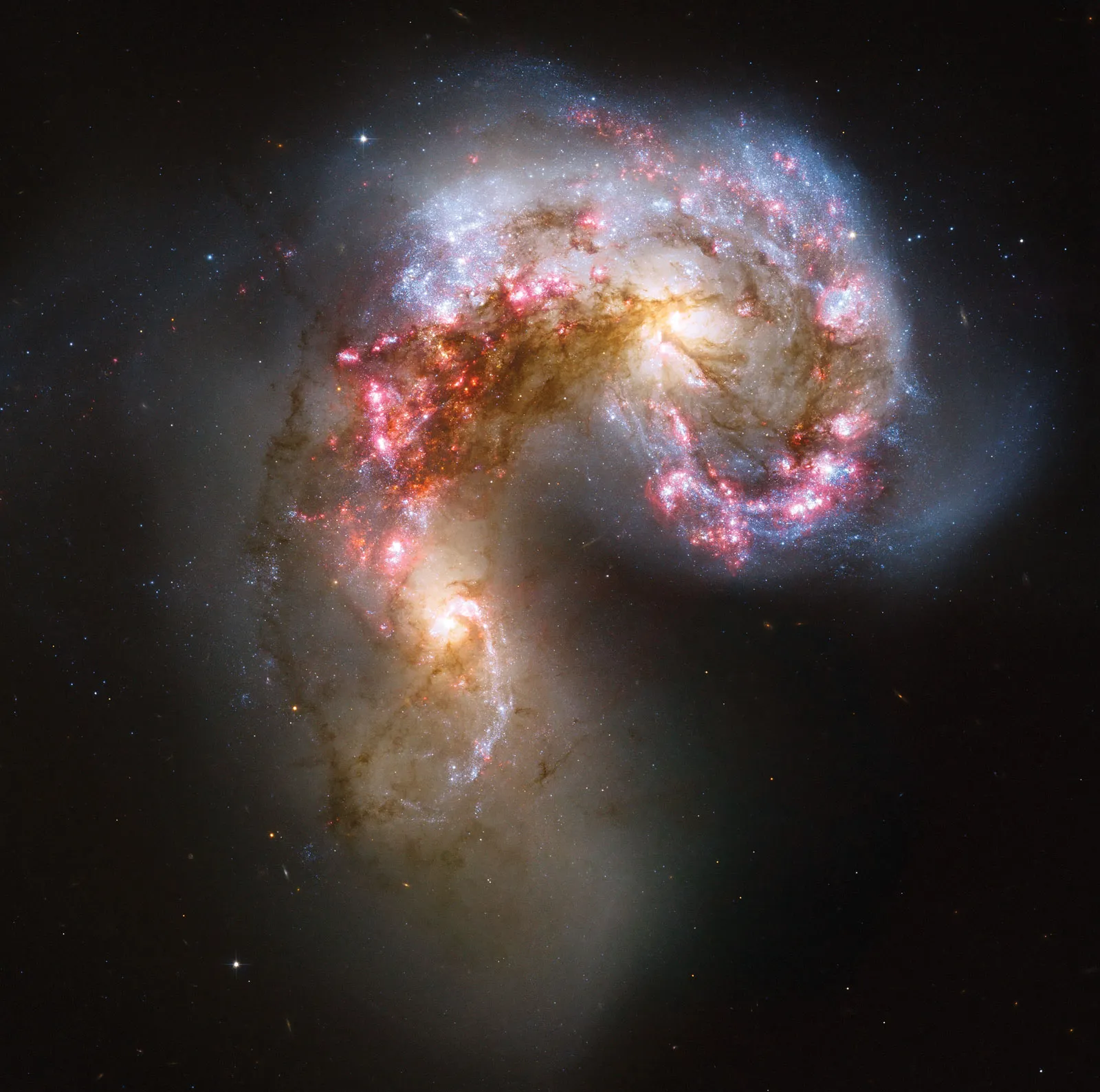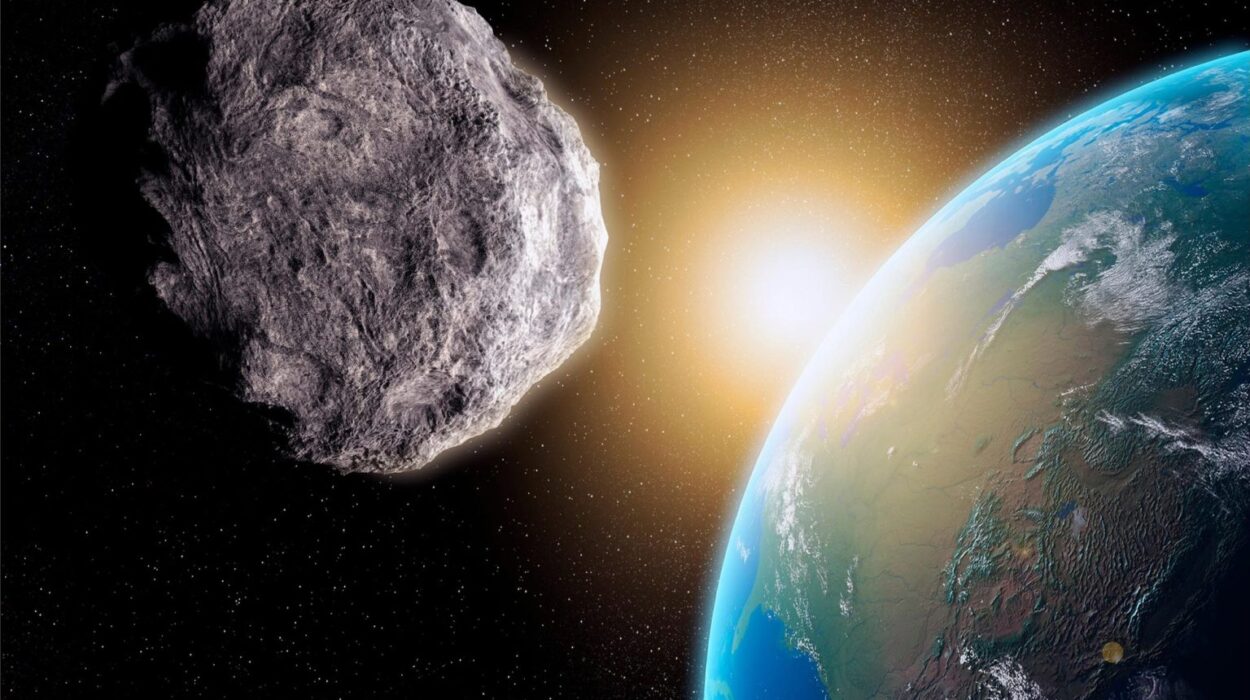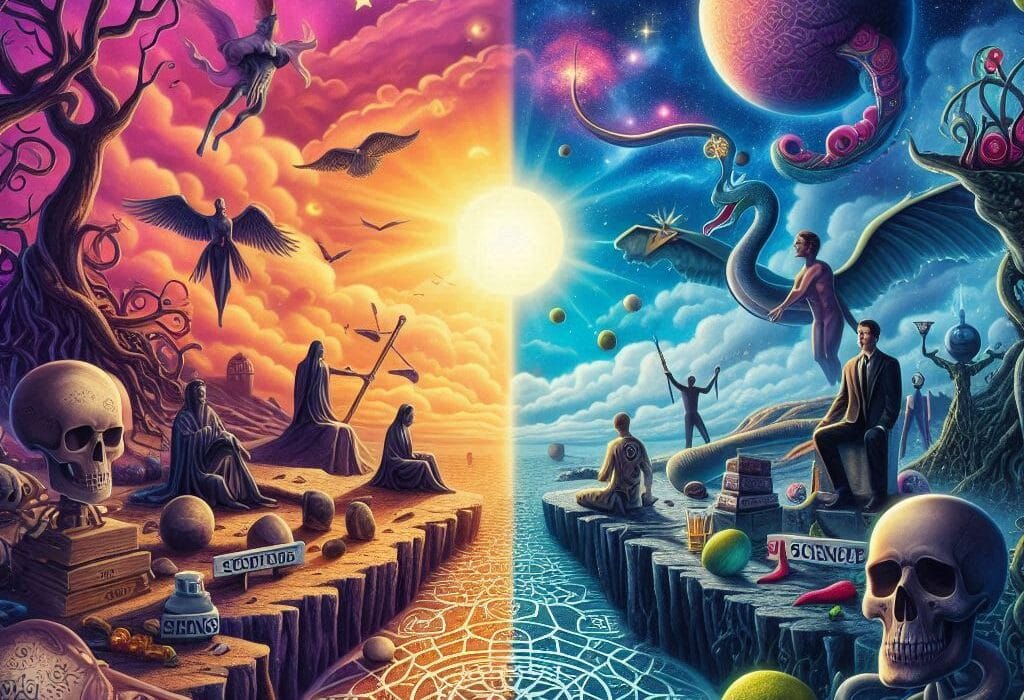On a warm summer afternoon in 1950, the physicist Enrico Fermi sat with colleagues at Los Alamos National Laboratory, casually discussing the possibility of extraterrestrial civilizations. The conversation wandered, as conversations among scientists often do, until suddenly Fermi blurted out a question so simple, yet so profound, that it has haunted humanity ever since: “Where is everybody?”
In those four words lay a paradox that continues to challenge science, philosophy, and even our sense of place in the universe. Given the vastness of the cosmos, the abundance of stars, and the countless planets that must exist, the universe should be teeming with life—intelligent life, civilizations far older and more advanced than ours. Yet, despite decades of searching, we see no evidence. No signals, no probes, no visitors. Nothing but silence. This silence is what we call the Fermi Paradox.
It is not merely a scientific puzzle; it is an existential question. To ask Where are all the aliens? is also to ask: Are we alone? Are we special? Or is the universe hiding something we are too small to see?
The Scale of the Universe
To appreciate the weight of the paradox, we must first confront the scale of the cosmos itself. The Milky Way, our home galaxy, holds around 100 to 400 billion stars. Modern astronomy has revealed that most of these stars host planets. Many of them lie in the so-called “habitable zone,” where conditions could allow liquid water to exist.
If even a fraction of these billions of planets are Earth-like, and if life arises naturally under the right conditions—as it did on our own world—then there should be countless biospheres scattered across the galaxy. From there, given time, some of these life forms should evolve intelligence, technology, and eventually interstellar ambitions. After all, humans achieved spaceflight within a blink of geological time. Civilizations a million years older than ours would have had time to colonize the entire galaxy many times over.
The numbers are staggering. Even if intelligent civilizations are rare, the scale of cosmic possibility makes it almost inevitable that others exist. And yet, despite radio telescopes scanning the skies, space probes journeying to the edges of the Solar System, and decades of speculation, there is no evidence. The universe, to our instruments, remains eerily silent.
The Paradox Unfolds
The Fermi Paradox arises from this clash between expectation and reality. Logically, the galaxy should be buzzing with signals, spacecraft, or megastructures—visible traces of alien industry and thought. But what we observe is an unsettling emptiness. The night sky reveals only stars, not civilizations.
This paradox deepens when we consider timescales. Our Solar System is 4.5 billion years old, but the galaxy itself is more than 13 billion years old. That means civilizations could have had billions of years to emerge before us. In cosmic terms, humanity has only just arrived at the party—yet it feels as though the entire universe is vacant.
So where are they? The possible answers range from sobering to terrifying, from mundane to awe-inspiring. The paradox forces us to confront not only astrophysics but also biology, technology, and the limits of human imagination.
Life’s Fragile Beginnings
One explanation is that life itself may be exceedingly rare. Perhaps the origin of life is not as automatic as we imagine. On Earth, the transition from simple chemistry to self-replicating organisms remains one of the deepest scientific mysteries. Despite decades of research, we still cannot pinpoint exactly how inanimate molecules sparked into the first living cell.
If that leap from chemistry to biology requires a sequence of improbable events, then life might be an extraordinary accident. Earth could be one of the few places in the galaxy where it has ever happened. In that case, the silence is not surprising—we may be the only living creatures listening.
But Earth also offers counterevidence. Life here began almost as soon as conditions stabilized. Microbial fossils appear nearly 3.5 billion years ago, not long after the planet cooled enough to sustain oceans. That suggests life, at least microbial life, may emerge easily when the environment allows. If so, then the real bottleneck might not be the start of life, but the path from microbes to intelligent civilizations.
The Rare Intelligence Hypothesis
While life on Earth appeared early, complex life took billions of years to evolve. For most of our planet’s history, the only inhabitants were simple microorganisms. It was only about 600 million years ago that multicellular organisms flourished, and only in the last few hundred thousand years that humans emerged with intelligence capable of technology.
Perhaps this transition is rare. The evolution of intelligence may depend on an unlikely chain of accidents: mass extinctions, climate shifts, genetic mutations, and environmental niches. Dinosaurs dominated Earth for over 150 million years without ever building radio telescopes. If not for a cataclysmic asteroid impact 66 million years ago, mammals—and eventually humans—might never have risen.
The universe may indeed be full of life, but most of it could be microbial slime beneath alien seas or forests of unintelligent creatures. Intelligent beings might be the rarest phenomenon of all. And if intelligence is rare, then perhaps we truly are among the first to awaken.
The Filter We Cannot See
Another possibility is that civilizations arise but rarely endure. Technology, for all its power, carries seeds of destruction. The “Great Filter” hypothesis suggests that at some stage of development, civilizations tend to wipe themselves out before they can spread among the stars. Nuclear war, uncontrolled climate change, pandemics, artificial intelligence run amok—these are threats we recognize in our own world.
If this filter lies ahead of us, the silence of the cosmos is a warning. Civilizations may bloom briefly, like sparks in the dark, only to extinguish themselves before making their mark on the galaxy. We may be listening for voices that once existed but are already gone.
The thought is chilling. It implies that survival beyond the technological adolescence we are now entering is extraordinarily rare. If true, the Fermi Paradox is not evidence of loneliness, but of fragility. We are not alone because others never existed, but because they destroyed themselves before they could say hello.
The Watchers in the Dark
Yet there are explanations more mysterious still. What if the aliens are out there but choose to remain silent? This idea, sometimes called the “zoo hypothesis,” suggests that advanced civilizations deliberately avoid contact, perhaps to allow humanity to evolve without interference. We might be like animals in a vast cosmic preserve, observed but untouched.
Another possibility is that communication between civilizations is far more difficult than we imagine. Maybe they use forms of communication beyond our comprehension—signals in dimensions we cannot perceive, or technologies indistinguishable from natural cosmic phenomena. Our search for radio signals may be like listening for drums in a world where everyone else is using fiber optics.
Perhaps they are so advanced that their presence would be unrecognizable to us. Imagine ants trying to understand the internet or skyscrapers. A million-year-old civilization might manipulate galaxies, build megastructures, or exist in forms of consciousness we cannot even imagine. To us, they would appear invisible—not because they hide, but because we are too primitive to notice.
The Cosmic Silence
The silence we encounter is not simply absence—it is a kind of presence in itself. The dark, star-filled night sky confronts us with an unsettling truth: if others are out there, they are not making themselves known in ways we can detect. This silence forces us to turn inward, to question not just the existence of others but the nature of ourselves.
Why do we long so deeply to find company in the cosmos? Perhaps it is because we fear insignificance. To be alone in the universe would make us unique, but also terribly fragile. To find others would mean we are part of something larger, a chorus of civilizations rising across the stars. But the silence reminds us that, for now, we may be the only voice.
Searching for Answers
Despite the silence, humanity continues to search. The SETI (Search for Extraterrestrial Intelligence) program has scanned the heavens for decades, listening for signals of artificial origin. Astronomers explore exoplanets with new telescopes, searching for chemical fingerprints of life in their atmospheres. Missions to Mars, Europa, and Enceladus probe for evidence of microbial life within our own Solar System.
Each discovery brings us closer to understanding. The detection of even the simplest extraterrestrial microbe would prove that life is not unique to Earth. The detection of a signal, however faint, would transform humanity’s view of itself overnight. It would mean we are part of a cosmic community, not isolated but connected across the stars.
For now, the silence continues. But silence is not proof of absence. The universe is vast beyond comprehension, and our search has only just begun. Humanity’s radio waves have traveled less than a hundred light years—a tiny bubble in a galaxy 100,000 light years across. We may be like villagers shouting into the night, unaware that beyond the mountains, civilizations thrive.
The Human Reflection
The Fermi Paradox is more than a scientific riddle—it is a mirror. It reflects our hopes, our fears, and our destiny. Are we rare and precious, the only intelligence the cosmos has yet produced? Or are we fragile, teetering at the edge of survival like countless civilizations before us? Or are we simply too young, too naïve to perceive the greater galactic community?
In asking Where are all the aliens? we are also asking: What will become of us? If the universe is silent because civilizations self-destruct, then our task is survival. If it is silent because life is rare, then our task is preservation. And if it is silent because the others are waiting, then our task is readiness—to grow into a civilization worthy of being noticed.
The Paradox Endures
Seventy years after Fermi’s simple question, the paradox endures. It lingers in the minds of astronomers, philosophers, and dreamers alike. It whispers when we gaze at the stars, when we launch probes into the void, when we wonder if someone, somewhere, might be wondering the same about us.
Perhaps one day the silence will break. A signal may reach us from across the galaxy, or a probe may arrive in our Solar System, or we may discover life thriving in an alien ocean beneath the ice. Until then, the paradox remains, both unsettling and inspiring.
The universe is vast, and time is long. Somewhere in the endless night, the answer waits. Whether that answer fills us with wonder or dread, it will reshape what it means to be human.
Until then, we listen. We search. We hope. Because the question Fermi asked is not just about aliens—it is about us. It is about our place in the cosmos, our destiny, and the story we will write among the stars.






